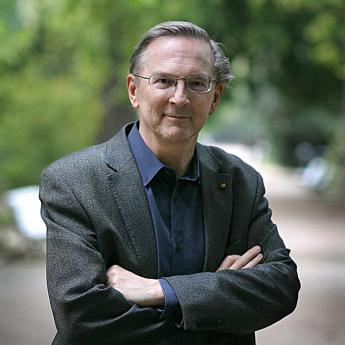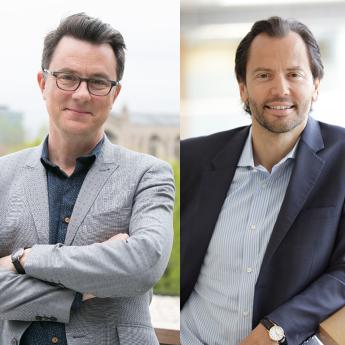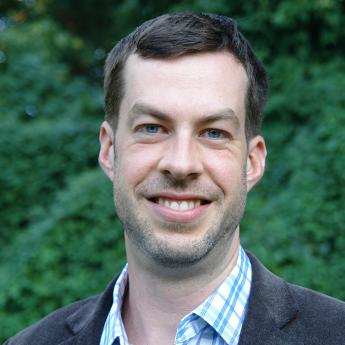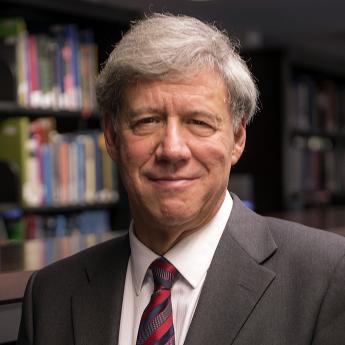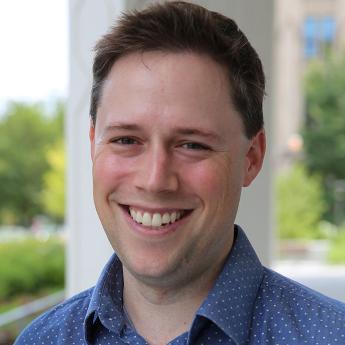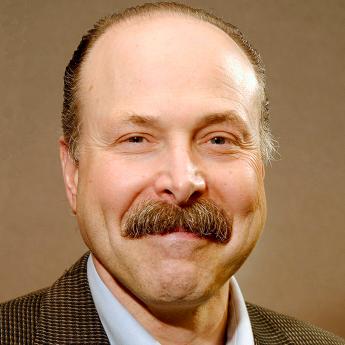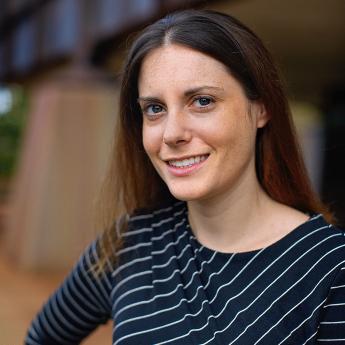Show Notes
People have been taking psychoactive drugs since the beginning of human history, but there hasn’t been a lot of good scientific study of these substances. One person who has been trying to turn a scientific lens toward them is Prof. Harriet de Wit of the University of Chicago, and what she’s discovered is surprising.
The latest research shows that there may be more uses for drugs like MDMA and LSD than sending people on mind-altering trips. In fact, they could radically change how some people engage with therapy. De Wit also examines microdosing, why it is so popular, and whether it does what people suggest.
Subscribe to Big Brains on Apple Podcasts, Stitcher and Spotify.
(Episode published July 30, 2020)
Related:
Transcript:
Paul Rand: Hello, Big Brains listeners. As of our last show, we’re celebrating 50 episodes of this podcast. It’s been an incredible journey through some of the best research the University of Chicago has to offer, and we’re excited to continue exploring how the work these scholars do is changing our world, and it’s all been possible because of you. Thank you for listening. As we hope to expose more people to this important work, we’d be very grateful if you would give our podcast a rating, a review, and share it with your friends and family. Thank you.
Paul Rand: Just a quick note before this current episode starts: Most of the drugs that are discussed in this episode are still considered illegal. All the studies in this episode are done under the supervision of trained professionals and with legal approval.
Paul Rand: Two years ago, renowned author, Michael Pollan’s book, How to Change Your Mind, about psychoactive drugs made a huge splash.
Tape: I was hearing about this incredible research using psychedelics like psilocybin and LSD to help people with their mental health problems.
Paul Rand: People have been taking psychoactive drugs for, well, almost since the beginning of human history, but there hasn’t been a whole lot of scientific research of these drugs, mostly because it’s really difficult.
Harriet de Wit: Unfortunately, most drug experiences are very internal, so there isn’t really a lot to see.
Paul Rand: Harriet de Wit is a scientist at the University of Chicago, and she’s been studying these drugs her entire career. She’s the type of expert, people like Michael Pollan speak to in order to actually understand what these drugs do to our brains.
Harriet de Wit: It’s something that we’re all intuitively interested in. It’s something we all have a little bit of experience, we’ve all had a few too many drinks, or caffeine or something, and we all have some sense of how the drug can change your view of the world, and so I think that the subject itself is just fascinating.
Paul Rand: It turns out, they can do a lot more, and can be used for a lot more, than just sending us on a mind-altering trip. De Wit’s research shows how these drugs may be an important tool for revolutionizing therapy and treating mental illness.
Harriet de Wit: People say it takes you out of yourself and it’s, allows you to see the world from a different point of view, and who wouldn’t be interested in that? I mean, that’s like, it’s like traveling, or skydiving or something like that.
Paul Rand: From the University of Chicago, this is Big Brains, a podcast about pioneering research and pivotal breakthroughs that are reshaping our world. On this episode, the unexpected benefits of psychoactive drugs. I’m your host, Paul Rand. If you try to picture a scientist studying LSD, MDMA, and other psychedelics in the lab, Harriet de Wit is probably not who would come to mind. She’s not a young student, she’s a distinguished professor who’s been researching psychoactive drugs for nearly 40 years.
Harriet de Wit: I think it’s totally fascinating.
Paul Rand: Of course, one of the first questions that comes to mind, at least my mind, when sitting down with a scholar who studies psychedelic drugs is, has she ever taken them herself?
Harriet de Wit: I have been asked that question. It’s a hard one to answer because you kind of lose either way. If you say yes, you’ve tried it, then you become one of these people that’s kind of a proselytizer and a promoter because of your personal experience. If you say no, I haven’t tried it, then you’re, can be told that you have no understanding of the phenomenon because you haven’t experienced it yourself, so I’m going to wiggle out of that and say that there are downsides either way.
Paul Rand: De Wit runs the Human Behavioral Pharmacology Lab at the University of Chicago, where she doses people with psychoactive drugs like MDMA and LSD, to find out what they really do to the brain. It’s a line of research that few people investigated before De Wit, and she and her colleagues have remained at the forefront of this field.
Harriet de Wit: I think it’s totally fascinating that you can give a drug that comes from either a plant or a chemistry lab, and it somehow alters, it acts on the brain, and it acts on existing brain systems that are there to mediate motivated behavior, reward, searching, remembering, and somehow the drug is acting on those systems, and then altering your behavior in a unique way that then somehow, you can use for beneficial purposes or for therapeutic purposes. I’m just fascinated that we can have this as a tool, and then under very controlled conditions, we can study how the drug effect manifests itself either in interactions with people or on how they perform a task, whether they’re more impulsive, whether they respond more to stress and that kind of thing, and then in addition, we can ask them how they feel, whether they feel anxious, whether they feel depressed, whether they like the drug, whether they don’t like the drug, so it’s a very rich area of research.
Paul Rand: Recently, she’s been focusing on one drug in particular.
Harriet de Wit: A lot of the studies that I’ve done in the last 10 or so years have been studying the effects of the drug MDMA or ecstasy.
Tape: Chemists call it MDMA for short. Users have a word for it, ecstasy.
Harriet de Wit: Ecstasy is a drug that people claim it makes them feel connected with other people. It makes them feel more social, it makes them feel ... It’s sometimes called the love drug, but nobody really knows what it does in sort of psychological or biological for that matter terms, and so we asked ourselves, “What is it that’s different about MDMA, and what is this prosocial effect, and how does it manifest itself?” We’ve tested all kinds of different standardized psychological procedures. “Does it make people feel more social?,” “Does it make people able to detect other emotions in other people?,” “Does it make people more reactive to other people’s emotions.”
Paul Rand: In one controlled experiment, they dosed participants with MDMA, then showed them faces with negative expressions and faces with positive expressions, and then they looked at the way those participants recalled those images.
Harriet de Wit: We asked the question whether the drug specifically changes your negative memories. Gradually, out of those studies, I think that a picture has emerged that it does make people more reactive to positive expressions in people’s faces and less reactive to negative faces, so the drug makes people less sensitive to detecting anger or threat in other people’s faces, and if it does that, if that’s kind of one possible psychological mechanism by which it might make people feel more social.
Paul Rand: This decrease in sensitivity to negative stimuli is one of the crucial insights of De Wit’s research. MDMA is commonly thought of as a drug that just increases sensitivity to positive stimuli, but it’s actually the negative effect that could make this drug so useful in an unexpected place, therapy.
Harriet de Wit: It appears to make the patient more able to face negative thoughts and negative memories, and it seems to be not just the drug, but the drug in combination with the therapist, so it’s not just that you take the drug and your negative thoughts go away, but rather, it makes you open to the therapeutic process, and that’s what I would like to be able to model in some way or figure out what’s going on in that interactive process, and that’s still a challenge for us, because the nature of social interactive process is extremely complex. When you talk with somebody, they look at you and you look at them, and you get facial responses, and you get reactions, and then you react to that, so that’s an extremely difficult thing to study, but that’s kind of the essence of what seems to be happening.
Paul Rand: De Wit is still figuring out how this works, but the evidence points to the idea that for someone who’s experienced a traumatic event, MDMA may be able to help them reprocess that memory, and essentially change the way they recall it forever.
Harriet de Wit: The testimonials and the reports from using MDMA with PTSD are absolutely remarkable. Again, it seems to be the person with this PTSD appears to be able to face these negative memories more readily, and then able to kind of process them, and talk about them. Why that is, we don’t really know. I mean, and I think that’s kind of becomes one of the central questions that we would be interested in. What is it that the drug does that allows them to handle these negative memories, and then talk about them, and then process them? The people with PTSD become completely preoccupied, and the negative memories just take over their whole consciousness and appear to grow in strength, if anything.
Paul Rand: OK, so you made the comment that the people actually become more open and the therapy has that ability to, for lack of a better word, permeate them in a different way. When they are off of the medication, are those benefits continuing in the non-drug-induced state?
Harriet de Wit: Yes. It turns out that once they’ve been able to talk about it in the therapeutic session, then they continue to process those new thoughts and new insights over a period of months afterwards, and apparently, the benefits are not there immediately, but only as they reprocess. It’s almost like altering your memories. It’s like every time you remember something, you change it in a certain way, so under the drug, they made a really big change, and then each time after that session, they retrieve that memory and somehow reestablish it in its new form, so it is a very lasting effect. I think it also requires a lot of work and it’s not easy, so it isn’t that it’s a sudden thing that the drug clears away the memories, but rather, it’s something for the patient to work with.
Paul Rand: I see, and so is it becoming increasingly common, if that’s the right word, for MDMA to be used in various forms of psychotherapy or is that still not a mainstream activity?
Harriet de Wit: It’s still not a mainstream activity. It’s been approved, I think for phase three trials, so there’s one very active organization maps, and they’ve initiated a huge effort to do the FDA approved clinical trial studies with PTSD and MDMA, and they’ve made fantastic progress, and so they’re well along the way to getting FDA approval. Once they get FDA approval, then it could be a more mainstream approach. There’s still all kinds of things about the regulatory issues about the drug is a Schedule I drug, which means it’s not approved for any medical purposes, so there’s still some regulatory obstacles, but they are certainly doing the first big step to getting it approved.
Paul Rand: Now, that doesn’t mean that you’ll be able to use MDMA in therapy next year. We’re still a long way off from that, but it does mean that with FDA approval, researchers will be able to administer the drug in clinical trials. Coming up, shrooms, LSD, and what we really know about microdosing. Coronavirus is changing life as we know it on a daily basis, but how will the pandemic permanently reshape our lives in the future? What will our world look like five years from now?
Paul Rand: “COVID 2025: Our World in the Next 5 Years” is a new video series featuring leading scholars at the University of Chicago. They’ll discuss how coronavirus will change healthcare, international relations, education, and many other aspects of our lives. The series, from the same team that brings you this podcast can be found on YouTube with new episodes released regularly.
Paul Rand: MDMA isn’t the only psychoactive drug that De Wit studies in her lab. There’s another famous drug that her research is trying to turn scientific lens toward, LSD.
Harriet de Wit: LSD, of course, has a very long history.
Tape: LSD was isolated by Stoll and Hofmann in a Sandoz pharmaceutical company of Basel, Switzerland. When in 1943, Hofmann became temporarily psychotic to accidental ingestion of the drug, the doors swung wide open for research into the nature of the schizophrenic process.
Harriet de Wit: It was studied in the ‘60s and ‘70s, and it was actually used in therapy for all kinds of conditions at that time as well.
Tape: In carefully controlled experiments, interesting results have been reported on the therapeutic use of LSD, with the mentally ill, the drug addict, the terminal cancer patient.
Harriet de Wit: Then, the research on it was stopped for something like 30 years or more, until the group at Johns Hopkins started giving these very high dose to produce kind of a lasting, spiritual change in people. A number of people have been studying these quite high doses, high enough doses to have a significant trip essentially, and all the perceptual experiences that go along with that, and it’s all very carefully done under laboratory conditions with guidance and preparation, and then a reconstruction afterwards.
Paul Rand: Even though high doses of LSD have been studied for a long time, De Wit wants to know something else, that applies both to LSD and psilocybin, commonly known as ‘shrooms.
Harriet de Wit: My interest really came out of this phenomenon that it’s possible that very, very low doses of these psychedelic drugs, either LSD or psilocybin, people claim that taking very low doses every three or four days makes them feel better.
Paul Rand: You’ve probably heard of this. It’s called microdosing.
Tape: Microdosing.
Tape: Microdosing.
Tape: Microdosing.
Tape: Microdosing.
Harriet de Wit: They say it improves their mood, it improves their cognition, it improves their social interaction, which already makes me kind of, as a scientist, wonder that, “How can one drug produce all those effects?”
Paul Rand: Although it’s becoming a popular trend, no one has actually studied it under controlled circumstances or given it real scientific scrutiny.
Harriet de Wit: Thousands of people are doing it and claim benefits from it, but nobody has really done a double-blind study where you administer either the drug or placebo under conditions where the people don’t, neither the experimenter nor the subject knows what they’re getting, to test whether it really does have these beneficial effects.
Paul Rand: This type of double-blind study is crucial, especially with these psychoactive drugs because of the set expectations people have of these drugs’ effects.
Harriet de Wit: They’re prepared to see it as a beneficial thing in general, so the people that take the drugs in a nonmedical context are taking it because they’re expecting something positive, and that expectation can itself very much affect what the person experiences. If you give a drug to somebody who, and they really don’t have any clue what it’s going to do, it can transform the effects compared to when they know that what it might do.
Paul Rand: Very interesting, so the expectation is actually a big part of the driver?
Harriet de Wit: Exactly. Actually, that’s something that we’re very interested in. It might be that the beneficial effects are not just the pharmacological effects, but they’re in some way a combination between the expectation, and it might also not be completely expectation, but somehow it might be a combination of the expectation, the positive expression, and the pharmacological effect that somehow, that combination can create a positive and unique experience.
Paul Rand: What might microdosing look like if you can remove that positive expectation?
Harriet de Wit: We are looking for some improvement in either mood states so that people feel a little bit better after a series of the ... We give them a single dose every three or four days, and then we test how they feel after that, or placebo, and then we look at how they’re feeling after that series of doses, whether their mood is improved, whether their cognitive abilities are improved, whether they’re less depressed, so we have a whole series of sort of standardized tests. One of the questions we wanted to know is whether the drug changes across those four sessions, so we give it repeatedly, and when you give drugs repeatedly, they could either increase in their effects so they could get the effect you see it in session one could get greater, or they could decrease, consistent with tolerance. We didn’t know that ahead of time, and so whatever evidence we have so far suggests that the effects will decrease across sessions, so that whatever you have experienced on the first day, you’ll experience less and less. How the drug has cumulative effects across repeated administrations, we don’t know, and so that’s kind of where we’re starting with looking at what the effect does.
Paul Rand: Where do you see this field of study evolving over the next few years, and if you could crystal ball this for a moment, do you see that the studies will continue and some of these things will start becoming more mainstream and treatment in other areas, or what do you think is the evolution that we should be looking for?
Harriet de Wit: That’s a good question. I would hope that by studying the effects of the drugs in a variety of different disorders or different kinds of contexts, we’ll discover which they’re best for, and importantly, which ones they’re not so good for, and so I think that’s an important part of it. “Is MDMA good for autism and not so much for depression? Is it good for PTSD and not so much for some other disorders?” That’s how I would like to see it evolve, is that yes, they would gain credibility, and as we collect data, then we can make recommendations that it’s good for this kind of person and not so much for that kind of person.
Harriet de Wit: That’s kind of how I would like to see it go. There’s a lot of enthusiasm and a lot of ... Researchers are very positive about the area right now. I would like to see it become nuanced. I’d like us to discover also what the limitations are essentially, so yeah, I think that this is not something we’re going to be able to turn around and it’s gained enough credibility that this whole area of psychedelic drugs as medicines is likely to move forward in the next 10 years.
Episode List
Unraveling the Mystery of Life’s Origins on Earth, with Jack Szostak (Ep. 61)
Harvard geneticist and Nobel laureate explores how we got here—and whether we’re alone in the universe
The Urgent Need to Reinvest in American Research, with Barbara Snyder (Ep. 60)
AAU president discusses how more federal funding can secure American innovation
How Alternate Reality Games Are Changing The Real World with Patrick Jagoda and Kristen Schilt (Ep. 59)
UChicago scholars design ARGs to address issues ranging from climate change to public health
What Remains Unanswered After The 2020 Election, with William Howell and Luigi Zingales (Ep. 58)
UChicago economist and political scientist discuss the polls, what lies ahead for Biden and the country post-Trump
When Governments Share Their Secrets—And When They Don't, with Austin Carson (Ep. 57)
Scholar discusses the political theater of foreign policy—and the case for declassifying intelligence
How We Can Fix a Fractured Supreme Court, with Geoffrey Stone (Ep. 56)
Legal scholar examines how nomination of Amy Coney Barrett could tip an increasingly politicized bench
Correcting History: Native Americans Tell Their Own Stories (Ep. 55)
How scholars helped a Chicago museum rethink its representation of Indigenous peoples
The Future of Voting And The 2020 Election, with Assoc. Prof. Anthony Fowler (Ep. 54)
A leading political scholar discusses voting by mail, mobile voting and why he thinks it should be illegal not to vote.
Why The Quantum Internet Could Change Everything, with David Awschalom (Ep. 53)
A world-renowned scientist explores quantum technology and why the future of quantum may be in Chicago
The Way You Talk—And What It Says About You, with Prof. Katherine Kinzler (Ep. 52)
A leading psychologist explains how speech creates and deepens social biases


